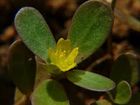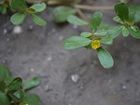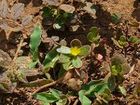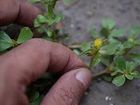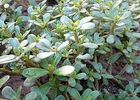Note: This is a project under development. The articles on this wiki are just being initiated and broadly incomplete. You can Help creating new pages.
Difference between revisions of "Portulaca oleracea - Purslane"
(→Fruit) |
(→References) |
||
| Line 59: | Line 59: | ||
<ref name="chemical composition">[https://www.sciencedirect.com/science/article/pii/S0378874112006393?via%3Dihub "sciencedirect"]</ref> | <ref name="chemical composition">[https://www.sciencedirect.com/science/article/pii/S0378874112006393?via%3Dihub "sciencedirect"]</ref> | ||
| − | <ref name="Leaf">[https:// | + | <ref name="Leaf">[https://gobotany.newenglandwild.org/species/portulaca/oleracea/ "go botany"]</ref> |
| − | <ref name="How to plant/cultivate">[ | + | <ref name="How to plant/cultivate">[https://www.pfaf.org/user/plant.aspx?LatinName=Portulaca+oleracea "practical palnts for future"]</ref> |
</references> | </references> | ||
Revision as of 10:33, 21 April 2018
Dudagorai or Portulaca oleracea (common purslane, also known as verdolaga, pigweed, little hogweed, red root, pursley) is an annual succulent in the family Portulacaceae, which may reach 40 centimetres (16 in) in height.Approximately forty cultivars are currently grown.
Contents
Uses
snake bites, boils, Snakebites, sores, Skin eruptions, pain from bee stings, bacillary dysentery, Diarrhea, hemorrhoids, postpartum bleeding, intestinal bleeding, cold, weak digestion.
Parts Used
Chemical Composition
alpha-linolenic, 0.01 mg/g of eicosapentaenoic acid, vitamin A, vitamin C, Vitamin E (alpha-tocopherol) and some vitamin B and carotenoids[1]
Common names
| Language | Common name |
|---|---|
| Kannada | Dudagorai, Doddagoni Soppu |
| Hindi | Khursa, Kulfa |
| Malayalam | |
| Tamil | |
| Telugu | boddupavilikoora, boddupavilikura |
| Marathi | NA |
| Gujarathi | NA |
| Punjabi | NA |
| Kashmiri | NA |
| Sanskrit | Loni, Lonika |
| English | Common Indian Parselane |
Habit
Identification
Leaf
| Kind | Shape | Feature |
|---|---|---|
| Simple | lobed or unlobed but not separated into leaflets | Leaf arrangement is alternate there is one leaf per node along the stem and the edge of the leaf blade is entire (has no teeth or lobes) |
Flower
| Type | Size | Color and composition | Stamen | More information |
|---|---|---|---|---|
| Unisexual | 2-4cm long | Yellow | 10 | there are two or more ways to evenly divide the flower (the flower is radially symmetrical) |
Fruit
| Type | Size | Mass | Appearance | Seeds | More information |
|---|---|---|---|---|---|
| General | 4–7 mm | The fruit is dry and splits open when ripe | many | {{{6}}} |
Other features
List of Ayurvedic medicine in which the herb is used
- Vishatinduka Taila as root juice extract
Where to get the saplings
Mode of Propagation
How to plant/cultivate
Requires a moist light rich well-drained soil in a sunny position. [3]
Commonly seen growing in areas
Tall grasslands, meadows, Borders of forests and fields.
Photo Gallery
References
External Links
- Pages that are stubs
- Ayurvedic Herbs known to be helpful to treat snake bites
- Ayurvedic Herbs known to be helpful to treat boils
- Ayurvedic Herbs known to be helpful to treat Snakebites
- Ayurvedic Herbs known to be helpful to treat sores
- Ayurvedic Herbs known to be helpful to treat Skin eruptions
- Ayurvedic Herbs known to be helpful to treat pain from bee stings
- Ayurvedic Herbs known to be helpful to treat bacillary dysentery
- Ayurvedic Herbs known to be helpful to treat Diarrhea
- Ayurvedic Herbs known to be helpful to treat hemorrhoids
- Ayurvedic Herbs known to be helpful to treat postpartum bleeding
- Ayurvedic Herbs known to be helpful to treat intestinal bleeding
- Ayurvedic Herbs known to be helpful to treat cold
- Ayurvedic Herbs known to be helpful to treat weak digestion
- Herbs with Stem used in medicine
- Herbs with Leaves used in medicine
- Herbs with Flower used in medicine
- Herbs with common name in Kannada
- Herbs with common name in Hindi
- Herbs with common name in Telugu
- Herbs with common name in Sanskrit
- Herbs with common name in English
- Habit - Annual herb
- Index of Plants which can be propagated by Seeds
- Index of Plants which can be propagated by Cuttings
- Herbs that are commonly seen in the region of Tall grasslands
- Herbs that are commonly seen in the region of meadows
- Herbs that are commonly seen in the region of Borders of forests and fields
- Herbs

